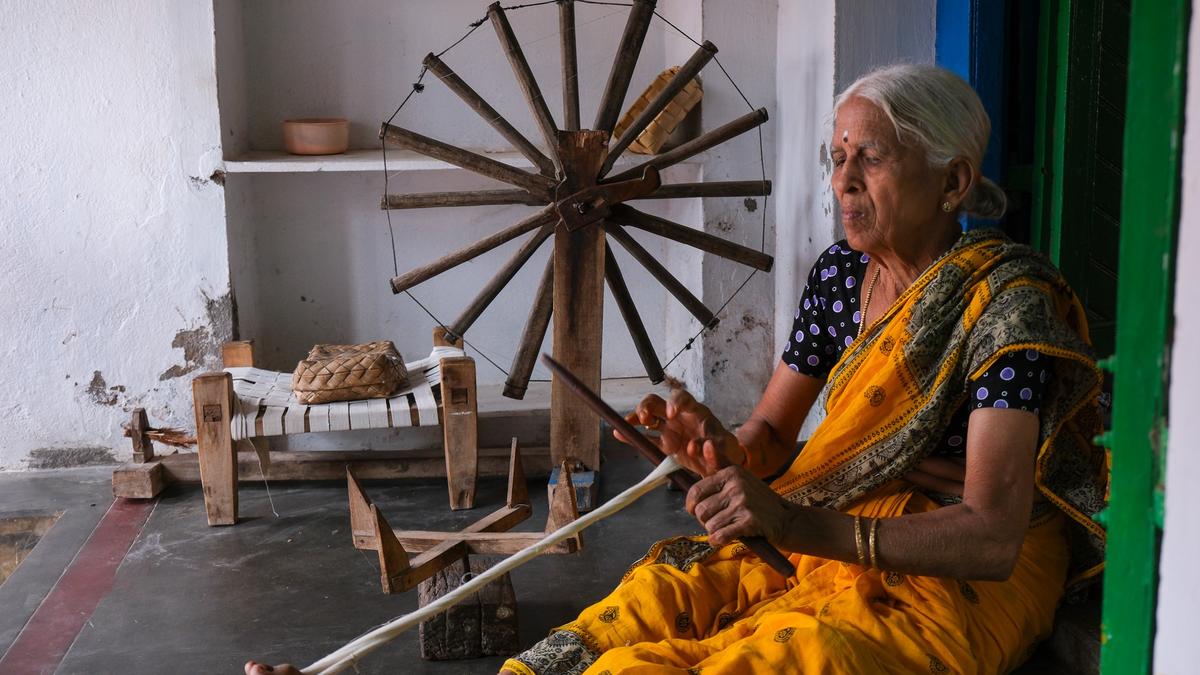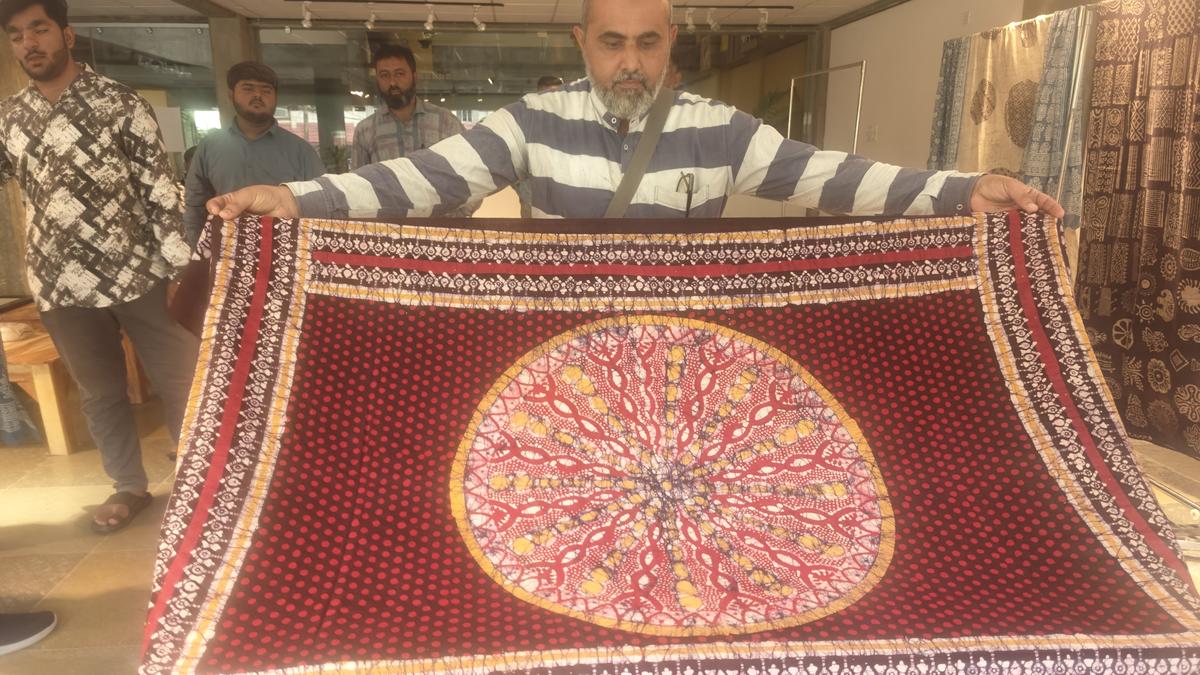Hyderabad | Hands-on workshops to learn indigenous khadi spinning techniques


Hyderabad | Hands-on workshops to learn indigenous khadi spinning techniques
On February 1 and 2, three master women spinners from Murapaka in Srikakulam district, Andhra Pradesh, will visit Hyderabad to demonstrate and teach participants the art of Patnulu, or handspun khadi of Ponduru. This traditional technique of spinning khadi, from cotton to yarn, involves five stages of processing the native short-staple cotton, konda patti (hill cotton), using indigenous tools. These women are among the few who continue to practise this craft, which was predominant during the pre-Independence era.
The initiative, titled ‘Patnulu: The Handspun Handwoven Craft of Ponduru — A Glimpse into Its Artistry and Artisans’, is being organised in collaboration with the Chitrika Foundation, which works with handloom weavers in Srikakulam and East Godavari in Andhra Pradesh and Narayanpet in Telangana. These women spinners are stakeholders in the Chitrika Artisan Producer Company.
Textile designer Samyuktha Gorrepati, project lead for the workshop and someone who has closely observed the work of the spinners, explains how the Patnulu khadi of Ponduru differs from yarn spun using the ambar charkha, a modernised version of the traditional spinning wheel. “In the post-Independence era, the ambar charkha was designed to create more livelihood opportunities for women and came to be widely used,” she says.
The ambar charkha, promoted by the Khadi and Village Industries Commission, uses multiple spindles, allowing spinners to produce several yarns simultaneously. In contrast, the Patnulu method employs a single spindle, enabling the spinner to process only one yarn at a time. Samyuktha highlights that this single-spindle approach is closer to the Gandhian philosophy of spinning khadi.
In the Patnulu method, all five stages of converting cotton into yarn involve intricate hand processes using simple, indigenous tools. Using konda patti cotton, the spinners create fine-count khadi yarn. Samyuktha notes that, prior to the Industrial Revolution, India was renowned for producing some of the finest cottons, such as chintz, muslin, and palampore. This demonstration and workshop aim to give participants and textile enthusiasts a rare opportunity to learn how Indian spinners crafted some of the world’s finest handspun cottons.
At the two demonstration venues, posters will provide insights into the Patnulu craft, and a 13-minute short film will be screened. Souvenirs, including yarn spun and autographed by the spinners, as well as handspun and handwoven stoles and saris, will also be available.
Participants who register for the two-hour spinning workshops will be guided by the master spinners in using these indigenous tools. Samyuktha explains that the objective behind organising the demonstrations and workshops is to offer students and textile enthusiasts the chance to witness the transformation of cotton fibre into fine yarn. In Ponduru, this handspun fine Patnulu cotton yarn is sold to weavers, who use it to create exquisite handwoven fabric.










